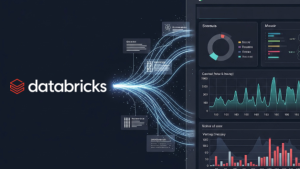We hold a big place in our heart for mobile developers. While most mobile monitoring only covers crashes, our expansive mobile SDKs give you full context about the speed and performance of your native applications. You can use the SDKs to recreate user paths that lead to crashes or bugs, get visibility into backend services and APIs, and add custom metrics.
Given the responsibility we have to mobile devs, we’re always improving our feature set. Today, we want to let you know about some of the updates we’ve made for our XCFramework Agent, React Native support, and the reliability of our Android service. Read on for the full run down, and if you’re not using New Relic’s Mobile capability yet, you’ll find it included in Full-Stack Observability.
XCFramework Agent supports iOS, tvOS, and MacOS Catalyst
The New Relic iOS and tvOS agents will now be distributed as the New Relic XCFramework Agent 7.0.0. This agent supports iOS, tvOS, and the newly added iOS for Mac Catalyst. Additionally, the New Relic XCFramework Agent will be distributed as a dynamically linked library.
We’ve made it a lot easier to work with Apple's XCFramework by packaging together artifacts and libraries for tvOS, iOS, mac OS, and Mac Catalyst. We’ve reduced the number of separate files you’ll need to manage, with one file now linking to both apps. You’ll no longer need to worry about separate updates each time you update your framework.
How to get started
The XCFramework is distributed through cocoapods under the existing NewRelicAgent pod spec. Starting with 7.0.0, you’ll receive the XCFramework artifact and can utilize it with apps enabled for iOS, tvOS, and Mac Catalyst.
If you want to download it manually, refer to the release notes or the installation page in New Relic One.
Instrument your React Native apps with our open source module
If you’re looking to instrument your React Native applications, try our experimental open source React Native Module. The module uses native New Relic agents to expose the Javascript environment.
With this module, you’ll be able to capture the following data as custom events from your React Native applications:
- Interactions and the sequence they created
- Information passed to New Relic to track user sessions
More details on how to collect and send this data to New Relic can be found in the module’s repo. Note that you’ll need to install either the Android or XCFramework agent in order to use this module.
What kind of support is available?
This module falls under our experimental category for open source projects. These projects have no ongoing maintenance, development, or support. You’re encouraged to collaborate with our community via the Explorers Hub, and we do welcome contributions from the community.
Improvements to Android stack trace deobfuscation
We’ve improved reliability from our Android service and changed the way our service handles Android stack deobfuscation to make crash and handled exception stack traces more accurate after retracing. These fixes will be released to production in the following weeks, so stay tuned.
After these improvements are released, you may see more frames, and frames with more accurate information, in your stack traces on the Crash and Handled Exception pages. You may also receive a flurry of new crash emails. If you do, don’t worry—your app isn’t crashing more than it already was. With these improvements, we’re now using a better algorithm to deobfuscate your stack traces, and this will only be a temporary effect of the changes.
Finally, these changes are all happening behind the scenes—you won’t need to upgrade your agent to see the effect.
If you haven’t explored all the capabilities New Relic’s Full-Stack Observability offers, try it for free now.
The views expressed on this blog are those of the author and do not necessarily reflect the views of New Relic. Any solutions offered by the author are environment-specific and not part of the commercial solutions or support offered by New Relic. Please join us exclusively at the Explorers Hub (discuss.newrelic.com) for questions and support related to this blog post. This blog may contain links to content on third-party sites. By providing such links, New Relic does not adopt, guarantee, approve or endorse the information, views or products available on such sites.



